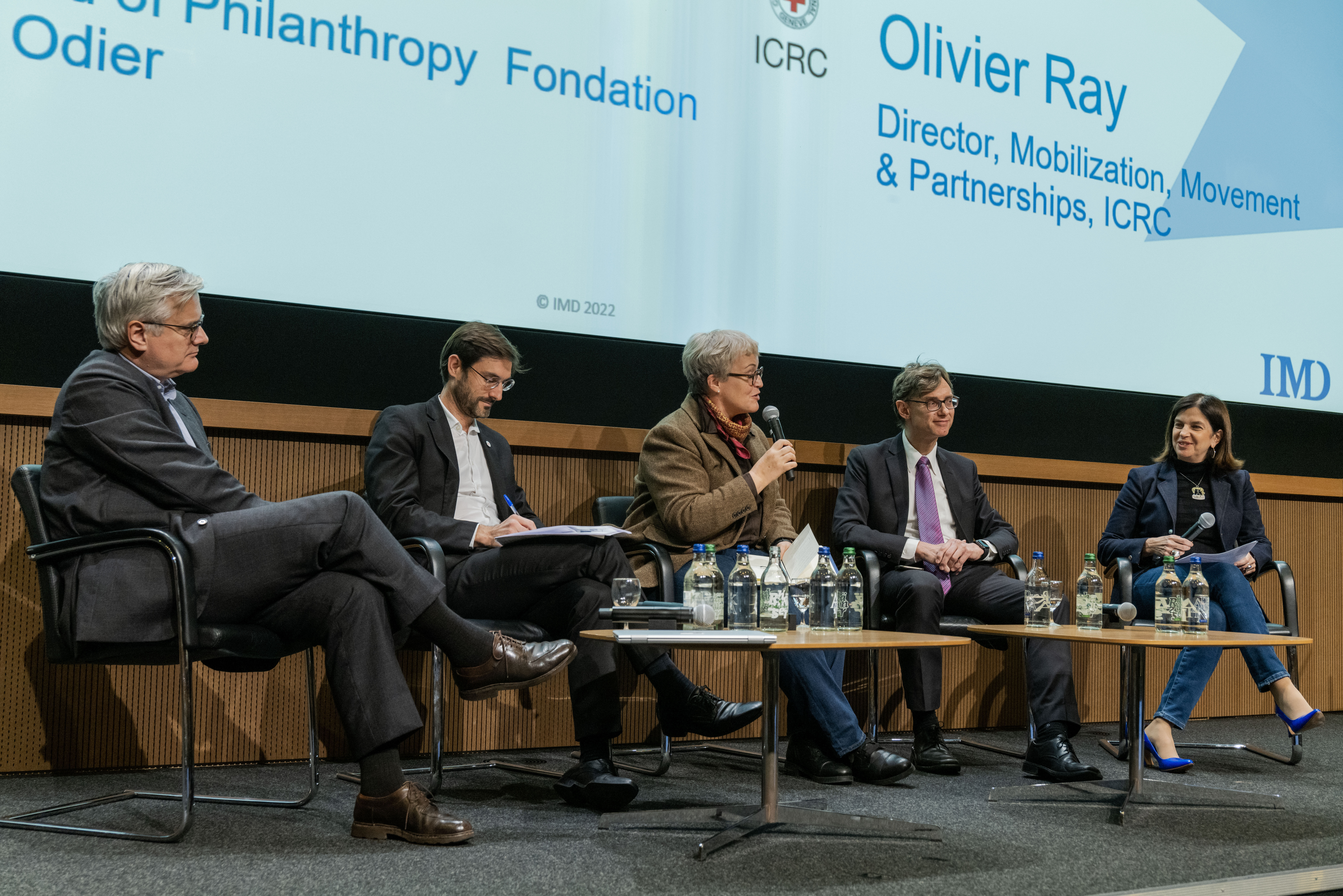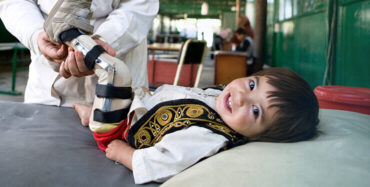Partnerships between the humanitarian, development, and private sector will be increasingly important to scale game-changing financial models that can help improve people’s lives in fragile settings, said participants at the official launch of IMD’s Driving Innovative Finance for Impact (DIFI) program.
The program, designed in collaboration with the ICRC, Fondation Lombard Odier, and the World Economic Forum (WEF), aims to equip leaders working in frontier markets with the skills needed to deliver innovative finance for humanitarian impact. These include financial expertise, change management, and partnership building.
As corporates increasingly look to do well by doing good, IMD President Jean-François Manzoni said cross-sector partnerships will bring in different kinds of financing and capital to social impact projects along with accountability and new ways of working together.
“Increasingly, we find there are investors that are not only interested in maximizing their return, but are also interested in having reasonable returns while having a very positive impact on the world,” he said. “So, I find this program to be extraordinarily innovative and extraordinarily timely.”
Vanina Farber, elea Professor for Social Innovation and Director of the DIFI Program, pointed to the growing impact economy in which a wide range of players including humanitarian and development actors, investors and enterprises are working together to power economic growth while solving social and environmental challenges.
“A lot of like-minded people are trying to find a way to align incentives and align resources to change around purpose,” she said.
A pioneering program
Facing unprecedented levels of humanitarian need across globe, compounded by climate change, the COVID-19 pandemic and the war in Ukraine, the ICRC needs to find new ways to deliver more sustainable humanitarian impact, said ICRC Director General Robert Mardini.
“This is why our journey to learn how to come up with new financing models is important –because, at the end of the day, we need to find more solutions to reach scale and speed for people and communities affected by conflict,” he said.
One example of these new financial models and partnerships is the ICRC’s Goma West Resilient Water Project in the Democratic Republic of Congo which aims to help over 330,000 people access safe and affordable drinking water. The 40 million Swiss franc project brings together humanitarian and development funding to build the non-existent infrastructure, paving the way for a financially sustainable operating model with private sector participation and investment.
For these projects to succeed, actors will not only need financial expertise but also an ability to manage change and shift mindsets, said participants during a panel discussion on how to enable partnerships and address unmet needs.
Olivier Ray, Director of Mobilization, Movement and Partnerships at the ICRC, said the organization was undergoing a cultural shift to articulate new pathways to more sustainable responses, complementing its traditional and still much-needed ‘do-it-yourself’ model.
“We need to develop that reflex of asking ourselves: ‘Are we going to be more impactful or sustainable by delivery with others?’” he said. “As with any cultural movement, it takes time to deliver.”
The ICRC is seeking a balanced portfolio of partners to fulfill its pipeline of projects and will seek out those which can plug gaps in their own capacities to maximize the added value, he added.
Max Martin, Executive Vice President and Global Head of Philanthropy at Lombard Odier, which contributed to the Goma project, said he believed the ICRC could play a pioneering leadership role by learning how to package its deep expertise and on-the-ground insight in many countries to attract more capital.
“If we do it right, we clap with both hands; you have the expertise on the ground, you have the ability to put this together, and we and other professionals have the ability to source capital,” he said.
Ray agreed that the ICRC could use its experience and connections in fragile and violent settings to “de-risk” projects for development finance institutions. “It so happens that the ICRC usually has been there for decades,” he said. “And, for the ICRC, its core business is to be in a dialogue with all of the stakeholders.”
Find out more about the DIFI program and how it can develop your organizational capacity to lead innovative finance transactions in the humanitarian and development space here.



